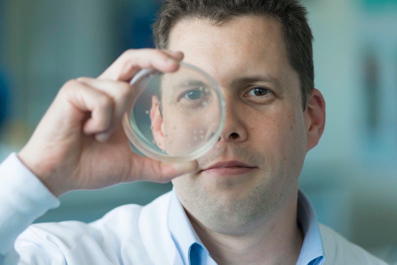 Cleanzine: your weekly cleaning and hygiene industry newsletter 17th July 2025 Issue no. 1171
Cleanzine: your weekly cleaning and hygiene industry newsletter 17th July 2025 Issue no. 1171
Your industry news - first
The original and best - for over 20 years!
We strongly recommend viewing Cleanzine full size in your web browser. Click our masthead above to visit our website version.
Fighting infections with viruses
 Scientists at the University of Brighton have shown viruses that can kill bacteria may be used to combat common infections related to the use of medical devices and other equipment.
Scientists at the University of Brighton have shown viruses that can kill bacteria may be used to combat common infections related to the use of medical devices and other equipment.
This new insight could lead to new methods of preventing infections and could contribute to overcoming problems with antibiotic resistance.
The news comes after the recent government review on the antibiotic resistance challenge suggested that deaths from antibiotic resistant infection could exceed deaths from cancer by 2050, and cost the global economy $100 trillion.
A team led by Dr Brian Jones, (pictured) Reader in Molecular & Medical Microbiology at the university's College of Life, Health & Physical Sciences, has been studying infections associated with the use of urinary catheters which are used in their millions across the world every year.
The team has focused on a particular species of bacteria called Proteus mirabilis, which is a common cause of these infections and leads to extensive encrustation and blockage of catheters. This, in turn, leads to the onset of serious complications such as kidney infection and septicaemia, one of the UK's biggest killers.
Dr Jones and his team have evaluated the potential for viruses that specifically infect and kill bacteria - called bacteriophage - to prevent these infections.
"Our work provides good initial evidence that bacteriophage can treat infections caused by Proteus mirabilis and prevent catheter blockage," says Dr Jones, currently serving as head of research development at Queen Victoria Hospital in East Grinstead, West Sussex.
"This could lead to new ways of managing patients fitted with urinary catheters, providing much benefit to a large number of patients, and also contribute to reducing antibiotic use and tackling resistance."
Dr Jones said more research was needed: "We are still at a very early stage in this work, and have a long way to go before we can be sure this will lead to an effective way to control these infections, but bacteriophage have been used extensively in other countries for decades, and the challenge of antibiotic resistance makes it important to look at using these promising alternatives to antibiotics.
"We think an important issue will be in developing ways to deliver bacteriophage as needed, which is a key aim of our ongoing work."
The research is a collaboration with scientists and clinicians from the University of Brighton, the University of Bath, Queens University of Belfast, Surrey & Sussex Healthcare NHS Trust, Frontier Pathology NHS Partnership, the Blond McIndoe Research Foundation, and Queen Victoria Hospital NHS Foundation Trust.
Dr Karen Knox, Consultant Microbiologist and Lead Infection Control Doctor with
Surrey & Sussex Healthcare NHS Trust and Frontier Pathology, says: "Long term indwelling urinary catheters pose significant healthcare associated infection risk and burden, often in elderly and already immunocompromised patients.
"This research is an exciting opportunity to explore and potentially open up new avenues of infection prevention and management, which provides some optimism in the era of ever increasing antimicrobial resistance."
10th March 2016







